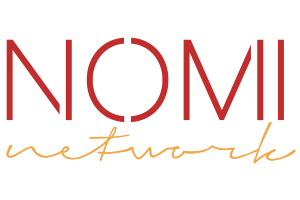Can Fair Trade End Sex Trafficking?
Fair Trade certified goods, those for which the producers have been paid a fair wage under non-exploitative conditions, are increasingly touted as a solution to modern-day slavery in different labor industries. It’s a logical argument; when consumers demand more fairly produced goods, producers will seek to meet that demand by enslaving and exploiting fewer people. But what about the millions, mostly women and girls, enslaved in the commercial sex industry? What can Fair Trade do for them?
Actually, Fair Trade can do a lot towards ending trafficking into commercial sex industries.
To understand how Fair Trade can help reduce sex trafficking, we first have to understand how and why sex trafficking happens. On a basic economic level, sex trafficking is a business requiring three components: a buyer (a john), a seller (a trafficker), and a product (a woman or a girl). Without all three of these components, there’s no trafficking. Let’s look at a country like Cambodia as an example. In Cambodia, there are men who want to buy sex (both native Cambodians and tourists), as evidenced by their thriving commercial sex industry. There are also people willing to be traffickers for money, as indicated by trafficking arrests and convictions. And finally, there are women and girls who are vulnerable to becoming trafficking “product”. So for Fair Trade to reduce sex trafficking in Cambodia, it has to reduce or remove one of these components.
Now, let’s for a moment pretend we live in Fair Trade World. In Fair Trade World, all the factories in countries like Cambodia pay workers a living wage and provide healthy and humane working conditions. The fishing industry, agricultural industry, and mining industry are all safe places to work to make a living. Even domestic servants are treated with dignity and paid justly for their work. However, in Fair Trade World, men still want to buy sex. Traffickers are still willing to traffic to make a buck. But in Fair Trade World, women and girls have many choices of ways to earn a decent living. Choices can prevent women from taking dangerous offers of work abroad in big cities out of financial desperation. Choices allow mothers to support their children in school without sending children to work in commercial sex. Choices give women who initially chose prostitution but find themselves exploited a way to leave.
We’re still a long journey from Fair Trade World, but groups like the Nomi Network see where that journey leads. When we support good jobs and fair wages, venues for exploitation and slavery are decreased and vulnerable people are empowered. It’s not a silver bullet or a magic bean that will destroy the dark specter of sexual exploitation and slavery, but it helps reduce one component of the criminal business.
And Nomi Network knows what that “component” is: a precious human life.
- Amanda Kloer, www.change.org. Amanda blogs regularly about human trafficking at http://humantrafficking.change.org/
Actually, Fair Trade can do a lot towards ending trafficking into commercial sex industries.
To understand how Fair Trade can help reduce sex trafficking, we first have to understand how and why sex trafficking happens. On a basic economic level, sex trafficking is a business requiring three components: a buyer (a john), a seller (a trafficker), and a product (a woman or a girl). Without all three of these components, there’s no trafficking. Let’s look at a country like Cambodia as an example. In Cambodia, there are men who want to buy sex (both native Cambodians and tourists), as evidenced by their thriving commercial sex industry. There are also people willing to be traffickers for money, as indicated by trafficking arrests and convictions. And finally, there are women and girls who are vulnerable to becoming trafficking “product”. So for Fair Trade to reduce sex trafficking in Cambodia, it has to reduce or remove one of these components.
Now, let’s for a moment pretend we live in Fair Trade World. In Fair Trade World, all the factories in countries like Cambodia pay workers a living wage and provide healthy and humane working conditions. The fishing industry, agricultural industry, and mining industry are all safe places to work to make a living. Even domestic servants are treated with dignity and paid justly for their work. However, in Fair Trade World, men still want to buy sex. Traffickers are still willing to traffic to make a buck. But in Fair Trade World, women and girls have many choices of ways to earn a decent living. Choices can prevent women from taking dangerous offers of work abroad in big cities out of financial desperation. Choices allow mothers to support their children in school without sending children to work in commercial sex. Choices give women who initially chose prostitution but find themselves exploited a way to leave.
We’re still a long journey from Fair Trade World, but groups like the Nomi Network see where that journey leads. When we support good jobs and fair wages, venues for exploitation and slavery are decreased and vulnerable people are empowered. It’s not a silver bullet or a magic bean that will destroy the dark specter of sexual exploitation and slavery, but it helps reduce one component of the criminal business.
And Nomi Network knows what that “component” is: a precious human life.
- Amanda Kloer, www.change.org. Amanda blogs regularly about human trafficking at http://humantrafficking.change.org/


Comments
Post a Comment